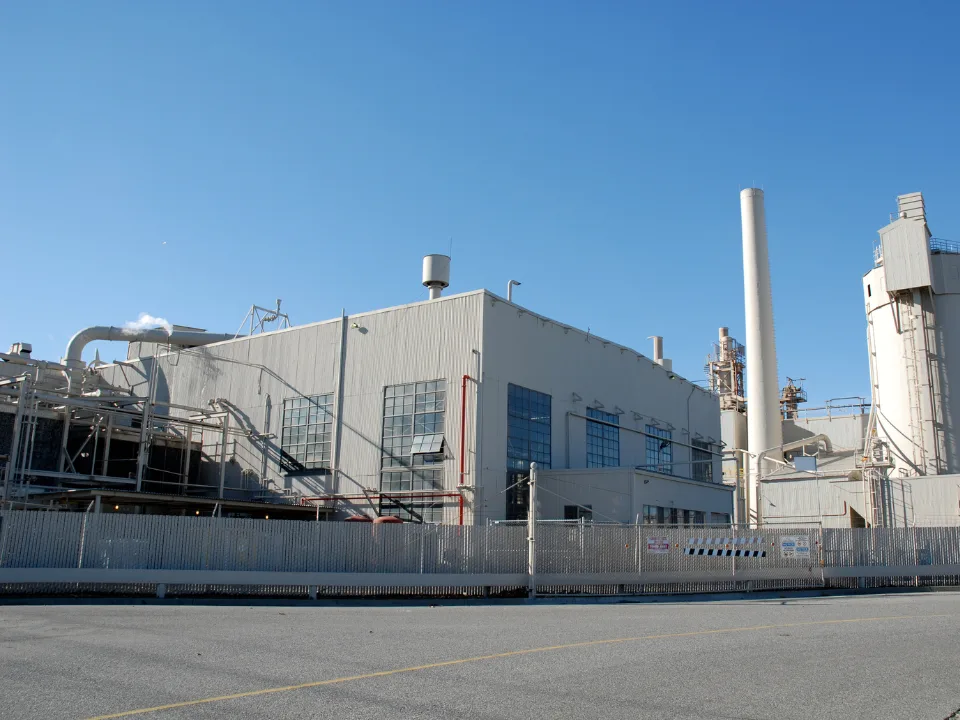NYSE Delisting in The Works for WeWork
WeWork, a coworking specialist, has been informed by the New York Stock Exchange that it will face delisting from the exchange in six months if its share price fails to exceed the $1 mark, which is the standard requirement for a company to remain on the NYSE.
Good morning. WeWork has a six-month window to avoid getting booted off the NYSE. The world’s largest industrial developer has reported steady demand for warehouses and rising rent prices. Meanwhile, Walker & Dunlop plans to lay off 8% of its employees, citing low transaction volume and economic uncertainty.
Market Snapshot
|
|
||||
|
|
*Data as of 4/19/2023 market close.
👋 First time reading? Sign up here.
WORK WOES
WeWork Has Six Months To Avoid Being Kicked Off The NYSE

WeWork (WE) is on thin ice with the New York Stock Exchange (NYSE) as its stock price has dipped below $1 per share for over a month now, resulting in a non-compliance notice. If things don’t improve, WeWork may have to consider delisting or doing a reverse stock split. Not a great situation to be in.
Plummeting share price: WeWork’s share price has fallen 90% since the company’s March 2021 listing with a market value of $9B. As of late Tuesday, its market cap was $361M, down 65% YTD from its $47B valuation in 2019. Due to the coworking company’s struggles to meet the minimum share price requirement, the NYSE recently issued a non-compliance notice. WE dropped 2% to just 48 cents in aftermarket trading after receiving the warning.
Grace period: Just because WeWork got a non-compliance notice doesn’t mean the NYSE will take immediate action and delist them. The exchange’s rules actually give WeWork a six-month period to address and resolve the issue before any delisting happens. So there’s still time for WeWork to try and fix things.
Possible quick fixes: WeWork plans to respond to the NYSE, affirming its intent to fix the problem within 10 business days of receipt of the notice. Japanese majority shareholder Softbank might explore the option of a reverse stock split, which would reduce the number of outstanding shares and automatically boost the stock price.
Get out of jail free cards: Since failing to turn profits in its first year as a public company, WeWork has been looking for solutions to increase its cash flow. It recently secured a deal to restructure more than $3B in outstanding debt and raise additional cash. SoftBank, WeWork’s largest investor, has poured $10B into the company since 2017.
➥ THE TAKEAWAY
In the works: Despite its financial struggles, membership and occupancy are up, with 682,000 memberships at the end of last year, the most in the company’s history. WeWork has also reported progress on its financial restructuring and aims to develop strategies to improve revenue and profitability. CEO Sandeep Mathrani believes there are positive industry-wide structural changes across the industry that the company’s business model could benefit from. Of course, we’ve all heard this before. At the end of the day, WeWork still faces an uncertain future as it desperately seeks to rebuild investor confidence.
📬 Click here to forward this email
🌐 Around the Web
📖 Read about how wealth managers and high-net-worth individuals remain bullish on US apartment development, despite high financing and construction costs.
🖥️ Watch Patrick Carroll, founder & CEO of CARROLL, warn that the US CRE market is heading towards a catastrophic collapse similar to the 2008–09 crisis. But he thinks multifamily is still a safe investment.
🎧 Listen to Keith Larsen, senior reporter at The Real Deal, discuss Jacob Garlick, the man who flaked on the down payment for the Flatiron building, but still wants it.
RISING DEMAND
Logistics Real Estate Grows Despite Economic Slowdown

Prologis (PLD), the largest industrial developer in the world, reported a steady rise in rents and warehouse demand for Q1, convincingly outperforming low expectations that were weighing down some customers.
Increasing income: In the first three months of the year, Prologis reported increased rental income that led to over 45% revenue growth to $1.77B YoY. This increase in rental income led to an uptick in the occupancy rate of Prologis’ massive worldwide portfolio to 98%, up slightly from 2022.

Landing and expanding: Despite some Prologis customers assessing their expansion plans, the industrial market remains strong, and few companies are giving back space. Logistics real estate looks healthy, which has driven more leasing of warehouses as post-pandemic e-commerce spending continues to increase.
Slower, softer demand: The largest CRE construction boom by square footage has finally started to slow down, falling 40% from the quarterly tally across the prior 12 months. Q1’s lower US industrial net absorption was half as strong as last year’s absorption, according to Adrian Ponsen, National Director for Industrial Market Analytics at CoStar.
➥ THE TAKEAWAY
Positive predictions: Despite the industrial construction slowdown and softer demand, the growth of logistics real estate remains healthy, with rising rental growth despite fewer new constructions. Prologis, which has been experiencing a steady increase in rental income, raised the low end of its full-year outlook for average occupancy in its warehouse portfolio slightly, projecting 97–97.5% while increasing its full-year estimate of net earnings attributable to common shareholders. The company expects to see a temporary dip in the vacancy rate of around 4% by the end of 2024.
📬 Click here to forward this email
📰 Daily Picks
-
Wealthy wanderlust: The US owns 32% of all global wealth and houses 36% of all millionaires—who are moving in droves to Austin, Greenwich, Miami, and Scottsdale.
-
Liquidation event: BlackRock (BX) will start selling $114B of Silicon Valley Bank and Signature Bank’s securities through its Financial Markets Advisory unit.
-
Going once, going twice…The Reuben brothers acquired the Century Plaza development in CA for $1B after placing a winning credit bid, or just 40% of the property’s $2.5B development cost.
-
Rent growth slowdown: US single-family rent growth slowed to 5% in Feb, with renters favoring affordable markets like St. Louis (where rent growth was 7.8%).
-
Big tech hub plans: Dallas-based Bandera Ventures plans to build a major tech complex on its 100-acre site in Lancaster, TX, with JV partner Skybox Datacenters.
-
Deal of the day: Cyprus-based Mohari Hospitality acquired Tao Group Hospitality from Madison Square Garden Entertainment (MSGE) for $550M, adding over 80 branded locations.
-
Help for the homeless: LA seeks $250M in funding to expand its Inside Safe program, which provides housing to homeless people in motels and hotels.
-
Office-to-Housing Conversion Act: Despite high rents and rates, office-to-residential conversions could help create rental space in struggling downtown areas.
-
We hear your concerns: The White House is closely monitoring the CRE sector, which faces financial turmoil amid preexisting pandemic-related struggles.
-
Pension fund problems: Calstrs, the $306B pension fund, faces plunging property values and maturing debt with declining interest rates.
-
Convert or perish: Arden Group received a $150M construction loan from Banco Inbursa to turn a former parking garage site in Inwood, NY, into a 222-unit, 19-story residential building.
-
Foot off the gas: Facing low transactions and economic uncertainty, Walker & Dunlop (WD) is cutting 8% of staff, or 110 jobs, joining JLL, CBRE, and CWK in making reductions.
📈 Chart of the Day
When looking at distressed bonds and loans across industries, real estate stands out with over $175B in debt. Meanwhile, Software & Services is in a distant second place with under $50B in distressed debt.
What did you think of today’s newsletter? |



















